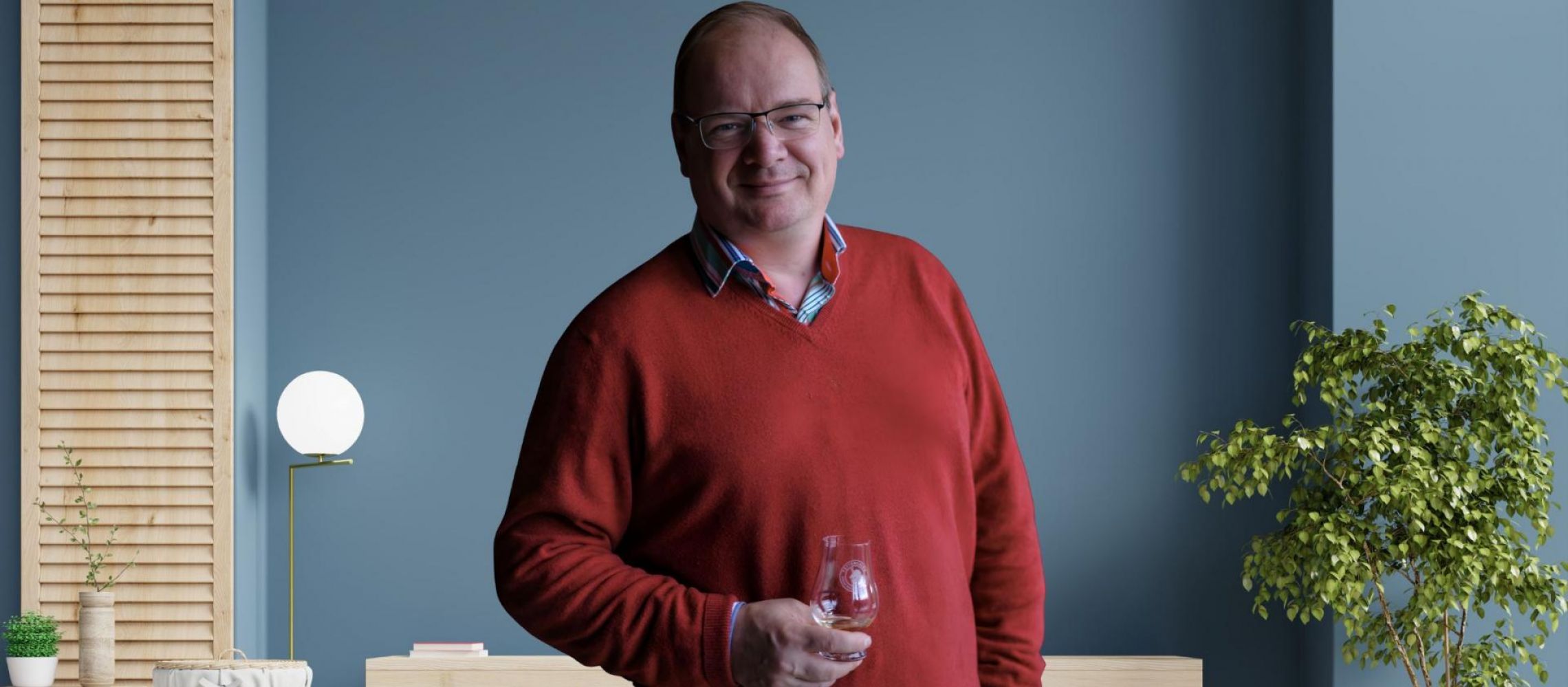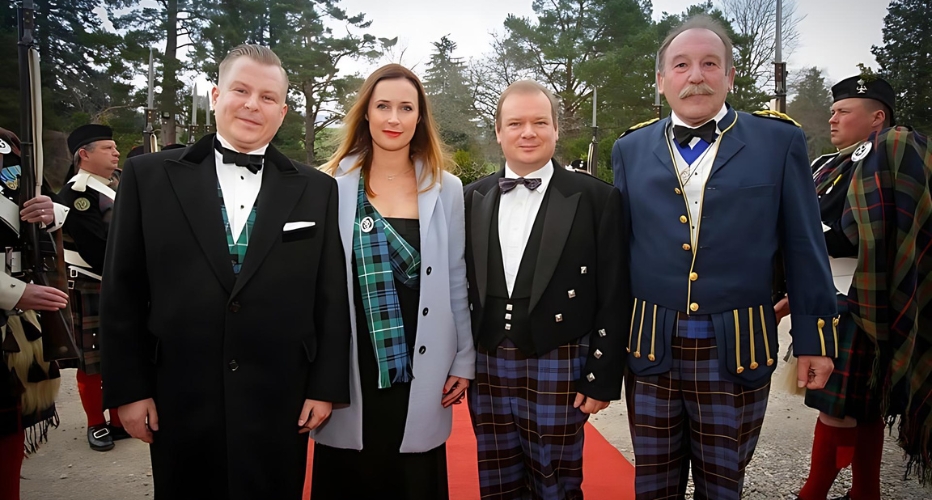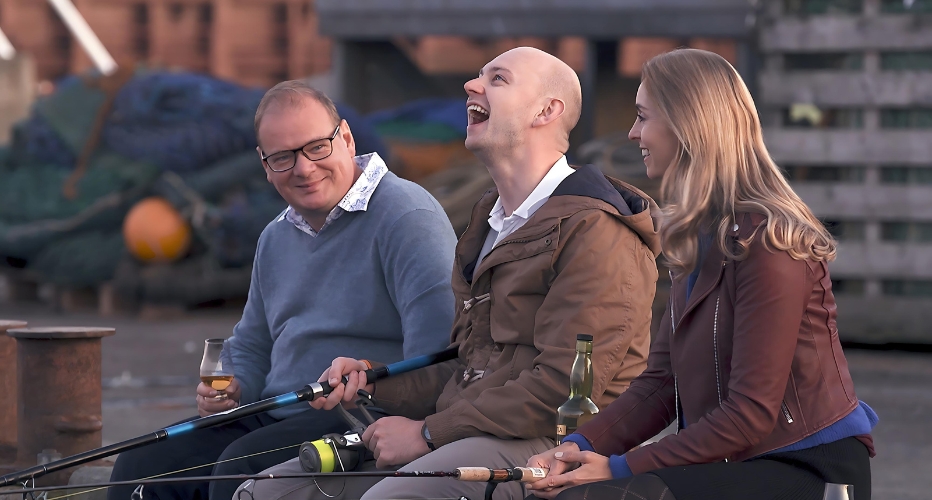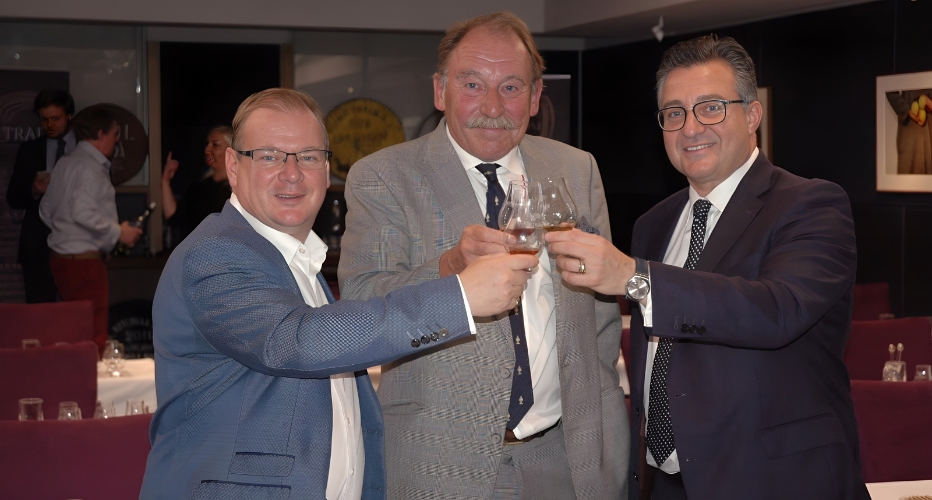Submission Deadline
28 February 2026
Judging
Date
24 & 25 March 2026
Winners Announcement
22 April 2026
28 February 2026
24 & 25 March 2026
22 April 2026

Colin Hampden-White's career trajectory reads like a narrative full of surprising turns and passionate pursuits. From his early days as a surveyor, Hampden-White has navigated through the worlds of photography, writing, and editing, eventually making a notable mark in the whisky industry. His journey reflects the power of following one’s passions and embracing unexpected opportunities. As a distinguished judge and member of the Keeper of the Quaich, Hampden-White has earned acclaim for his expertise in whisky. In this interview, he shares insights into how he transformed his artistic ambitions into a multifaceted career, including his role as a TV presenter and his deep involvement in the world of whisky.
This might be quite a long answer!
I always wanted to be a photographer and writer, however as I was living in Kenya (my father was a diplomat there), I didn’t realize that for an arts degree in the UK, I needed to be available for an interview. I never got accepted to any photography courses. So, I opted for a degree that I thought would provide an interesting career. It didn’t and after six years in Glasgow, I quit my job and asked Tony Marsh, a picture editor at the Scotsman Group to give me 5 minutes of his time and tell me if my photography was good enough to pursue a photography career or should I go back to surveying? I wasn’t asking for a job, but he gave me one. From the Scotsman, I moved to London and worked for most London newspapers as a freelancer before ending up as staff at the FT. Along the way, I always wrote a little for various publications about travel. I then gained gallery representation with Rebecca Hossack and worked for Vogue Italia. Having exhibited all over the world including the National Portrait Gallery I wanted to write again. One of my series of photographs was of the greatest winemakers in Bordeaux, Burgundy, and Champagne. I had access to wineries others did not, and having gotten to know Darius Sanai, the editor in Chief at Condé Nast, I did some writing for his own magazine LUX on both fine wine and whisky. I then wrote for a few years while learning about wine and whisky and in 2014 was offered the founding editor’s job at Whisky Quarterly. Not wanting to get pigeonholed as an editor I accepted on the condition I would do it for only three years. It was a fabulous experience, but after three years I resigned. I didn’t know what I wanted to do at the time but had always wanted to work with video at some point. At this point, I had known Aidy Smith for four years and Helena Nicklin through the wine world. We had become close friends and during a very jolly evening in Milroy’s of Soho, we thought up the concept of The Three Drinkers and the rest as one would say in history.

Image: Colin Hampden-White at the Keepers of The Quaich ceremony held at Blair Castle in Scotland.
I was lucky enough to be invited to many tastings as I worked for Condé Nast. At these tastings, I met many people who were members of the Circle and Christine Austin suggested I might benefit from becoming a member. She was absolutely right. I met many people with a wealth of experience and knowledge who were members including Jancis Robinson, Oz Clarke, and Steven Spurrier, all whom I gained knowledge from. The circle was a welcoming place for a fairly new writer wanting to expand their knowledge. The Chair at the time was Jim Budd, and he asked if I would join the committee. After Jim stepped down, he asked If I would take over. I did and stepped down myself having spent seven years on the committee. It should have been six, but Covid 19 extended my run by a year.
The Idea came about at the end of February 2018. Having resigned as editor of Whisky Quarterly, I had a night out with friends Aidy Smith and Helena Nicklin at Milroys’ of Soho. We all wanted to work with video in some format and came up with the idea of The Three Drinkers. That night Aidy did think the name was rubbish, but the next morning he changed his mind, and thankfully it stuck. Achieving the reality of having a TV show was accomplished through pure naivety and a lot of hard work. None of us knew how to go about making TV, let alone getting it broadcast. Aidy and I had some mutual friends in the TV world and with some advice and a good idea, we gained Amazon as a distributor, and the show was funded by many of the brands I had gotten to know very well throughout my career at that point. From an idea in February, cameras rolling in July, and broadcast in November, it was a whirlwind nine months.

Image: The Three Drinkers
With all three of us being so busy, it is very difficult to get us all together for a long shoot, so at the moment we are taking a break from filming The Three Drinkers.
I don’t really like the idea of a collection; they are just stock. Wine to be aged and whisky bottles I buy as I know I won’t be able to find the bottles on sale in the future. The bottles that mean the most to me are those that have been drunk, like a bottle of 1971 Châteauneuf du Pape I found at The Wine Society and drank with my family who visited me from Canada this summer. Or a bottle of Glenmorangie Signet, drunk with neighbors whilst watching the Perseid meteor shower in Sussex a couple of years ago. For me, a bottle doesn’t always need an occasion to be opened, the occasion is opening a great bottle.
I am involved in Drinklusive and am loving it. I had no formal mentoring, but I did have so many people help me on my way with their networks and knowledge. It feels good to be able to give something to another person starting out in their career. I am mentoring Miley Kendrick at the moment who is a great bartender in the busiest bar in Leeds but wants to also write more. Miley has achieved much already writing for various publications, and I really look forward to seeing her by-line a great deal more. Miley has talent and it would be a shame if it wasn’t used.
Keeper of the Quaich is an organization that rewards those who have been extemporary in the promotion of Scotch Whisky throughout the world. It is a huge honor to be asked to join. One needs a proposer and a seconder. Charles MacLean and Nicholas Morgan were mine. I felt huge amounts of imposter syndrome at the ceremony, as I was being “Keepered” alongside some great people in the whisky world like author Hans Offringer, Lagavulin’s Iain Mcarthur, and Georgie Crawford and Kirsten Grant Meikle of William Grant and Sons. All were and still are friends of mine, but I had always held them in much greater regard than me in the world of Scotch.
Simon Aron, the founder of Cask Trade, and I had become friends over the years through whisky. We met at tastings and festivals. He was one of those honest, open, and trustworthy people in life and when he asked if I would be a director at his new company Cask Trade I jumped at the chance. To join a Cask Trading company that holds the values of openness, honesty, and trustworthiness was important to me and along with their expertise, it sets them apart from the rest of the field. The other main factor which makes them different is their view on the whisky market being a whole market. Whisky at the end of the day needs to end up in a bottle, and over half of Cask Trade’s customers are trade companies, both independent bottlers and retailers. These companies are the lifeblood of the industry, as when a cask is ready to be bottled, it needs one of these companies to do so. Cask Trade is not simply about the sale. They see themselves as looking after a cask throughout its life. From new make spirit, being held as an investment to being sold to a bottler. Along that life, they use their expertise to educate customers and enjoy time with them in their offices on Regent Street and at events. It is a pleasure to be a part of the Cask Trade Family. My role, as well as helping with those aspects of the business is to assess the quality and timeline of casks. In some cases, independent bottlers don’t have access to a sample and need my help with tasting the whiskies. Above all, it is important to be able to have an idea of the lifespan and condition of a cask and it is this that I help with. It is important to sell the best casks to the right customers and that any profits they make are realistic and sustainable.

Image: The Officially launched Cask Trade Whiskey tasting led by Colin Hampden-White
The biggest trend I have seen has been the rise in entrants within the whisky category from outside of Scotland. Alongside the rise in entrants from outside of Scotland, the quality of these entrants has dramatically increased. They may not quite have the consistency of quality the Scots have, but some of the whiskies are world-beating. It has now been well over ten years ago that Kavalan won best whisky in the world at the World Whisky Awards and even last year that accolade was held by an English whisky. Not that Scotch has had its day. Far from it, but It does go to show that the rest of the world is catching up, entering more and more competitions and winning.
I am really enjoying working with an American Company called Preferabli. Over the last twelve years or more, they have developed sensory AI. Preferabli is the leading B2B2C discovery and recommendation software for wine, spirits, and food. I work with them tasting a huge range of spirits. Their ideas are groundbreaking and the people I am working with are a whole lot of fun.
I am also working on a new TV series; it is in the first stages of planning so there is a lot to do before I can start talking about that.
I am always looking for new and interesting collaborations and with so many developments in the world of drinks, there are plenty of opportunities. Finding the right ones can be difficult, which makes me thankful for my journey so far and the companies I am working with right now.
[[relatedPurchasesItems-63]]
Colin Hampden-White's story exemplifies how diverse interests and experiences can converge into a successful and fulfilling career. From his beginnings in surveying to becoming a celebrated photographer, writer, and whisky connoisseur, Hampden-White has carved a unique path marked by creativity, dedication, and a continuous pursuit of knowledge. As he looks forward to new projects and collaborations, his journey serves as an inspiring reminder of the possibilities that arise when one remains open to change and follows their true passions.
In conversation with Malvika Patel, Editor and VP, Beverage Trade Network
Show your spirits where it matters. Get your products tasted by top bartenders, buyers and experts at the London Competitions — enter now.